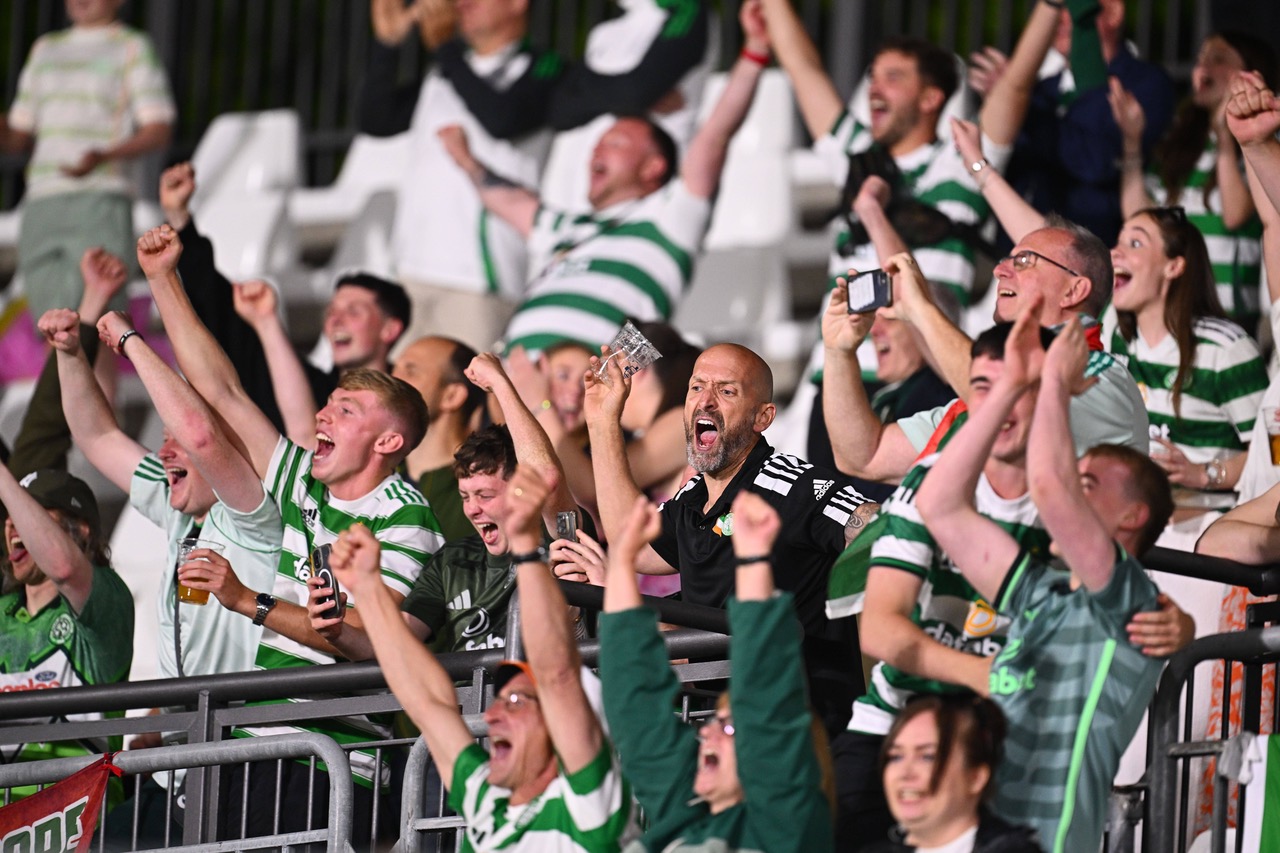CELTIC ANNOUNCED THE APPOINTMENT OF NEW COACH AND THEIR WEBSITE HAS JUST CRASHED,THEY MAKES HISTORY
A seismic shift at Celtic F.C. — departure, disruption and a bold new era
In the space of a few hours, Celtic Football Club announced the immediate departure of manager Brendan Rodgers and followed that with the appointment of a new coach — a major moment in the club’s modern history. The drama was underscored by a crashing of the club website as supporters rushed online for confirmation, a vivid illustration of just how significant the moment is for the Hoops and Scottish football.
Rodgers’ exit: what happened and why it matters
Rodgers has stepped away from his position as Celtic manager with immediate effect, marking the end of his second spell in charge of the Glasgow side.
According to the club’s statement and commentary from club insiders, several factors converged:
- Results have been below the expected standard for a club of Celtic’s stature. A key defeat — the 3–1 loss at Heart of Midlothian F.C. — left Celtic eight points behind the league leaders.
- There is reported internal tension: the club’s largest shareholder, Dermot Desmond, publicly criticised Rodgers for being “self-serving” and contributing to a “divisive, misleading … toxic atmosphere.”
- Media reports suggest transfer policy frustrations, squad issues and a feeling that momentum at Celtic was faltering.
For Celtic, a club with a storied tradition of domestic dominance and high expectations on Europe, the abrupt departure of a manager marks a major inflection point. It is not simply about one coach leaving — it’s about resetting direction, style, ambition, and the club’s relationship with its supporters and hierarchy.
The announcement: history made, website crashes
When Celtic announced the new coaching appointment, the volume of interest overwhelmed their systems — the club’s website crashed, underscoring the passionate engagement of the fanbase and the significance of the moment.
That technical failure is more than a glitch: it stands as a symbolic indicator of the moment’s magnitude within Celtic’s history.
Social-media chatter, news headlines and supporter forums lit up immediately. The message boards and online portals were ablaze with speculation, analysis and emotion.
Enter the new coach: Martin O’Neill
Midway through this period of turbulence and change, Celtic announced that Martin O’Neill would take charge of the first team. He is joined by former player and coach Shaun Maloney, returning to the club’s helm in a joint interim capacity.
Why O’Neill? Because he needs no introduction to Celtic supporters. He masterminded some of the club’s most memorable successes in the early 2000s — domestic titles, cups and European nights that linger in memory. His reinstatement is a statement, a rallying call, and a bridge between past glory and an uncertain future.
What this signals for Celtic: reset, rebuild or reclaim?
This move carries layers of meaning for Celtic’s next chapter:
- Stability and reassurance : By selecting a familiar figure like O’Neill, Celtic’s board signal a desire to steady the ship. The appointment says to fans: “We recognise the trajectory has been off course, so we are re-anchoring in our DNA.”
- Short-term gain, long-term question : While O’Neill may restore calm and deliver results in the short term, the board still faces the decision of who the permanent long-term manager will be. Will they simply ride out the remainder of this season with him, or seek a fresh direction after stabilisation?
- Identity and ambition : Celtic appear to reaffirm the importance of ambition — in the league, in Europe, and in how the club presents itself. The decision may be a hint that the board expects higher standards and less tolerance for stagnation.
- Relationship between board, manager and supporters : Rodgers’ exit drew attention to fractures — between coach and board, and between the club’s leadership and its fanbase. The new appointment presents an opportunity to rebuild trust, to reflect with transparency, and to align the club’s culture.
- Competitive context : Celtic find themselves chasing rather than leading. With hearts at the summit and European qualification under pressure, this managerial switch is as much a pragmatic move as it is a symbolic one.
The key questions ahead
As the shockwaves settle, there are several questions every Celtic stakeholder will be asking:
- Who will be the permanent manager? Is O’Neill just a stop-gap or a serious candidate? Will a full search be undertaken? How quickly will clarity emerge?
- What is the tactical direction? Will the new regime replicate the style of the previous coach, or will there be a sharper tactical shift? How will the squad adapt?
- How will the board interact with the coach? One of the recurring themes in Rodgers’ exit was tension between his public comments and the board’s narrative. Will the next appointment enjoy greater autonomy or be subject to tighter oversight?
- What about the transfer policy? The squad issues that the club encountered (and that Rodgers publicly referenced) will not disappear overnight. Will Celtic invest again aggressively? Will the club prioritise youth or big-name signings?
- Fans and expectations : Celtic supporters expect success — domestically and in Europe. The new coaching structure must deliver results quickly or risk losing goodwill.
Why this is a defining moment for Scottish football
Celtic’s managerial change holds implications beyond Parkhead:
- It reminds observers of how volatile the football business is — even clubs with history, resources and ambition can find direction slipping and feel compelled to act mid-season.
- It underscores the role of club governance. When internal alignment breaks down, it can accelerate decision-making under pressure.
- It highlights the ever-growing influence of social media, fan engagement and brand management. The website crash was a minor technicality but a major signal: everything is now magnified in the digital age.
- It raises the profile of Scottish football’s managerial labour market. One top job opening can set off dominoes — coaches, agents, media speculation — in Scotland and beyond.
- It reiterates that Europe remains the yardstick. Domestic dominance is expected for Celtic; the true challenge (and criticism) comes from European campaigns and international reputation. A new coach must satisfy both domestic and continental ambitions.
Final thoughts
The departure of Brendan Rodgers and the arrival of Martin O’Neill mark one of the most dramatic managerial hand-overs in Celtic’s recent history. The club has chosen to act swiftly, clearly and publicly — moving from a narrative of decline to one of reset and re-building.
For fans, this is a moment of hope, but also of caution: hope that Celtic can reclaim momentum, restore unity and deliver major silverware; caution because change alone does not guarantee success.
The new regime has an opportunity to write the next chapter of Celtic’s storied tale, but doing so requires coherent vision, unity from board to players to supporters, and a return to the levels of performance that have defined the Hoops for generations.
As the website crashes recede and the initial fan excitement settles, the true test begins: can this club once again dominate domestically and make waves in Europe? Only time will tell — but for now, Celtic have signalled that the old ways will no longer do, and that the next era starts now.








Post Comment